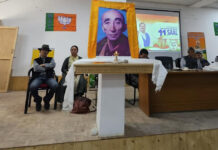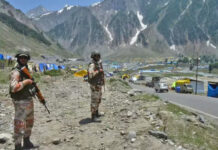The recent study published in The Lancet’s eClinicalMedicine journal paints a harrowing picture of the global cancer burden, with a stark focus on the deadly impact of tobacco smoking. This extensive research, conducted by a collaborative effort from the International Agency for Research on Cancer, Queen Mary University of London, and King’s College London, unearths deeply concerning statistics: over 1.3 million lives are lost annually to cancers caused by smoking in just seven countries, including India. These nations, which also count China, the UK, Brazil, Russia, the US, and South Africa among them, bear the brunt of more than half of the world’s cancer fatalities each year. The gravity of these findings cannot be overstated. Smoking, along with three other preventable factors – alcohol consumption, obesity, and human papillomavirus (HPV) infections – accounts for nearly two million cancer deaths combined. This alarming number is a clarion call for urgent action. It underscores the critical need for comprehensive public health strategies that aggressively target these preventable causes of cancer. The study goes beyond mortality rates, delving into the devastating impact of these risk factors on the quality and length of life. The concept of “years of life lost” presents a more visceral understanding of the cancer burden. Collectively, these four risk factors result in over 30 million years of life lost annually, with smoking tobacco being the most destructive, accounting for 20.8 million years lost. This staggering figure is not just a statistic; it represents millions of individual stories, dreams unfulfilled, families broken, and potential unmet. As policymakers and public health experts grapple with these findings, the message is clear: the war against cancer is not just about advanced medical treatments and early detection. It’s equally about prevention. There is a dire need for robust anti-smoking campaigns, education on the dangers of alcohol and obesity, and widespread HPV vaccination programs. These are not mere policy options but necessities to save millions of lives. Furthermore, this study highlights the uneven distribution of the cancer burden. The fact that seven countries constitute more than half of global cancer deaths points to disparities in healthcare access, public health policies, and awareness levels. It is a reminder that the fight against cancer is also a fight for health equity. This landmark study is a wake-up call to the world. It compels us to rethink our approach to cancer prevention, to invest in public health infrastructure, and to adopt a more holistic view of health and well-being. It’s time to acknowledge that many cancer deaths are not just unavoidable tragedies but the results of societal choices and policies. The battle against cancer is long and arduous, but it is one that can be significantly won through prevention and education.

Dogra Herald is the media of J & K, breaking language and geographical barriers, connecting J & K to the rest of India.
0191 245 4946
info@dograherald.com
Latest articles
Heavy rains in Kerala claim 42 lives, over one lakh in relief camps
iamjkstarr - 0
As Kerala continues to battle the torrential downpour lashing its shores, death toll has risen to 42 in rain related incidents, including flooding and...
KL Rahul regrets ‘confusion’ during 2023 ODI WC final
NEW DELHI, Apr 19For Indian cricket fans, it has been over a decade waiting for an ICC trophy. The Indian cricket team...
Scrapping Art 370 India’s internal matter: Bangladesh
iamjkstarr - 0
Bangladesh on Wednesday said that the Central government's move action in abrogating Article 370 that gave special status to Jammu and Kashmir is India's...




























